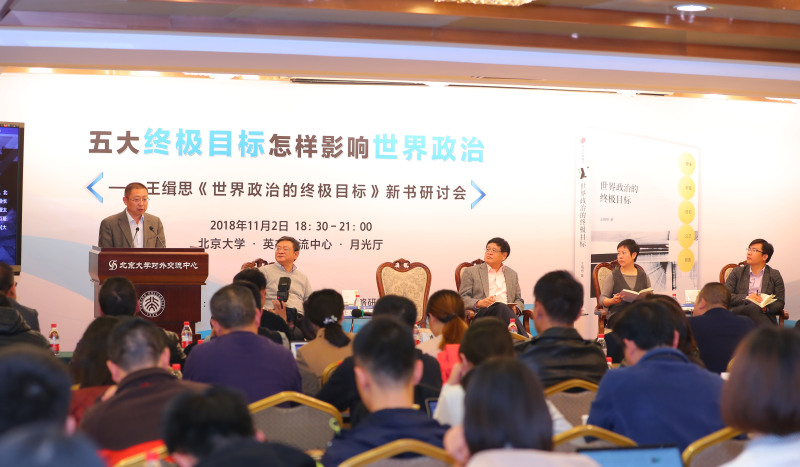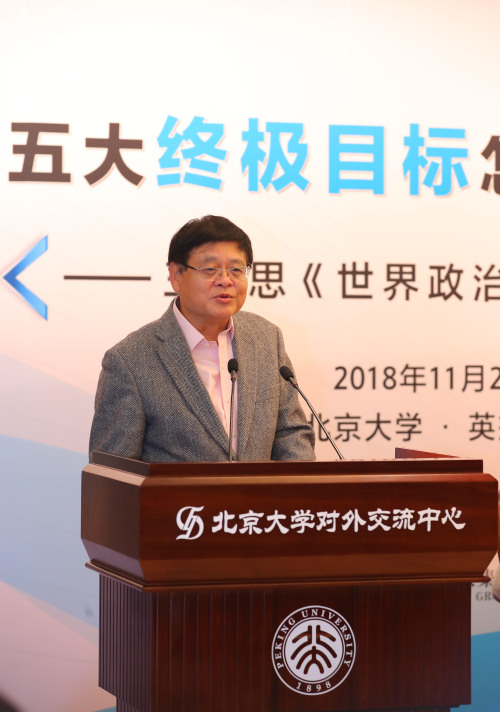
On the evening of November 2nd, 2018, the symposium on The Ultimate Goals of World Politics, the new works of Wang Jisi, Professor of the School of International Studies (SIS) and President of the Institute of International and Strategic Studies (IISS), Peking University (PKU), was held in the Moonlight Hall of Yingjie Exchange Center, PKU. The symposium was co-sponsored by CITIC Press Group and the IISS, PKU, with the theme of "How five ultimate goals impact world politics".
Prof. Tang Shiqi, Vice President of the SIS, PKU, presided over the symposium. Prof. Wang Jisi delivered a keynote speech. Other round-table guests attending the symposium were Liu Yu, Associate Professor of the Department of Political Science, Tsinghua University, and Bao Gangsheng, Associate Professor of the Department of Political Science, the School of International Relations and Public Affairs, Fudan University. Qiao Weibing, Editor-in-chief of CITIC Press Group, attended the symposium as a representative of the publisher. The guests had in-depth discussions on topics such as the publication of the new book, the content of the ultimate goals of world politics, and their impact on the world.
The book, The Ultimate Goals of World Politics, is the result of Prof. Wang Jisi's thoughts and studies on international politics for 40 years. During his long-term research, visits and studies, as well as international exchanges, Prof. Wang saw the difference between cultures and concepts of China and other countries, and began to think deeply about such issues like the standards of building political order in countries around the world, and whether there are ultimate goals of human society. The Ultimate Goals of World Politics is a concentrated exploration of these issues, and it is also a summary of Prof. Wang's insights about his decades of research on world politics.

Prof. Wang believes that the foundation of foreign policy and international relations is domestic politics. Under different historical and social conditions, political goals of countries around the world are different and even contradictory, but they have a common ultimate pursuit. Security, wealth, belief, justice, and freedom are the eternal themes, basic values, and ultimate goals of world politics. People's pursuit of power, establishment of countries, and promotion of democracy and the rule of law are ways and means to achieve these five ultimate goals. The order of importance of the five ultimate goals cannot be determined on a global scale, as countries have different specific orders at different stages of development. The five ultimate goals are the eternal ideal pursuit of mankind, and can never be fully achieved, but the unremitting pursuit of them can promote the continuous progress of human civilization.
The Ultimate Goals of World Politics studies the five ultimate goals of world politics and their interrelationship, which helps to understand the identity and diversity of regional country politics, clarify the criteria for judging the success of countries, broaden the view of observing world politics, and gain insight into the trends in contemporary world politics.
More than 100 people including teachers and students from PKU and other universities and people from the media attended the symposium on the new book and interacted with the guests in the final section.
Editor: Li Fangqi

